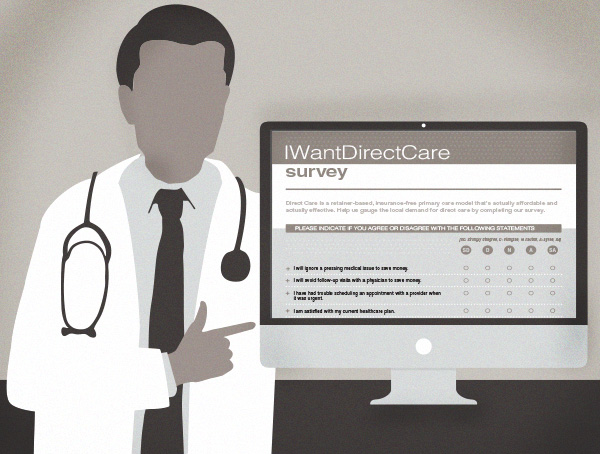
This may come as a surprise to no one (except, perhaps, existing healthcare providers), but patients who trust their providers tend to stay onboard for longer.
One report by Accenture found that patients who trust their healthcare providers are six times more likely to remain with them. It also found that 89 percent of patients who did leave a provider did so because the physician wasn’t easy to deal with, the administration was stifling and difficult to navigate, or digitalization was underdeveloped.
These facts are increasingly at odds with the status quo, where there’s a clear lack of trust in public health, with many patients feeling that healthcare has declined rather than improved in recent years.
While big businesses with deep pockets often miss the mark, DPC clinics are making a notable difference by doing something old-school yet radical—building trust through straightforward and fair practices.
Trust and Transparent Pricing
It’s well known that the traditional healthcare industry can feel like a maze of hidden fees, leaving patients not just sick but financially bruised.
And like any market where there’s a clear need and opportunity, DPC models have risen and completely upended this trend by cutting through the complexity with clear, transparent pricing.
Rather than being terrified of opening a letter from their healthcare provider with an endless list of charges, DPC patients know exactly what they’re paying each month without the dread of unexpected charges.
This peace of mind embodies the principle that healthcare shouldn’t be a financial gamble.
You can see this clearly with medication and copays.
Where big healthcare corporations mark up medications and lab tests, turning necessities into profit centers, DPC clinics offer these services at wholesale prices, with a minimal markup of around 10%.
And while copays often act as barriers, deterring patients from seeking care when they need it, DPC models smash these barriers by ditching copays altogether. Many DPC practices go even further, offering additional procedures as part of their membership at no extra cost.
This approach does way more than simply lower costs—it builds immense trust. Patients understand where their money goes, and they appreciate the honesty that is part-and-parcel of a DPC clinic’s business model.
The DPC Edge: Flexibility, Speed, and Efficiency
While big healthcare outfits are floundering with their cookie-cutter approaches and bloated bureaucracies, DPC clinics are thriving by staying lean and agile.
They’re able to adapt quickly, embrace new technologies and tailor their services to the immediate needs of their community.
Perhaps nowhere was this more apparent than during the COVID-19 pandemic, where DPC clinics were able to provide uninhibited effective care thanks to their rapid adoption of telemedicine technologies prior to and during the pandemic. This meant they could continue to offer virtual consultations and remote monitoring despite lockdowns and social distancing.
Even today, DPC clinics have already started to leverage nascent AI and machine learning technologies to analyze patient data. These AI-driven tools are being used to streamline practices and identify patients at risk of chronic conditions, enabling early intervention and personalized treatment plans.
Many DPC clinics have also developed mobile apps that allow patients to schedule appointments, access their medical records, and communicate directly with their healthcare providers, while traditional hospitals have patients waiting in endless call lists hoping to get an appointment.
These practices aren’t just providing care; they’re cultivating communities anchored in trust.
In DPC settings, this trust translates into tangible loyalty, with patients not just returning but actively promoting their clinics. They become advocates, drawn in by the fair, transparent practices that set DPC apart from the bureaucratic giants of healthcare.
Trust as a Strategy, Not Just a Value
In a landscape dominated by corporate healthcare, DPC clinics prove that being small and focused on trust can be a powerful strategy.
They offer a blueprint for healthcare that prioritizes patient care over profits, simplicity over complexity, and transparency over obscurity.
By aligning their business practices with patient interests, DPC models aren’t just surviving; they’re thriving, showing that in healthcare, trust is not just a value—it’s a strategy for success.






